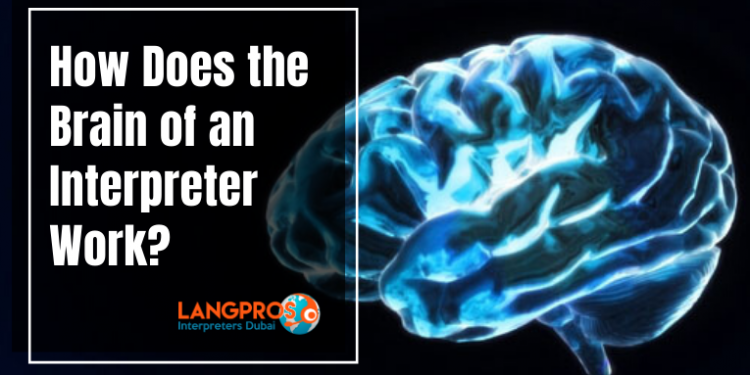When you watch someone interviewing an actor, sports champion, or politician who speaks in a foreign language on the TV, and, in a few seconds, you hear words in your language, you may ask yourself how it is possible for interpreters to perform that task.
Those linguists have to listen to the speaker, understand the meaning of his words, think about a translation and verbalize it…all at the same time.
Wiring the Brain
What makes the brain of an interpreter so efficient?
Many people think that bilinguals are perfect for simultaneous interpreting because they already know two languages, but this is extremely wrong. While bilinguals could manage basic, daily dialogues, when it comes to simultaneous or consecutive interpreting, the interpreter has to be trained and prepared for the situation.
Experts tried to answer our question about the functioning of the brain of an interpreter, but they still have a lot to learn. Recently, a Russian university has published an article entitled “Testing the efforts model of simultaneous interpreting: An ERP Study”, focusing on the analysis of three activities involved in the performance of an interpreter: listening, memorizing and speaking. Researchers wanted to understand if linguists are performing all these three actions together or one at a time.
The results pointed on a redistribution of attention. Therefore, the ability of the interpreter is to switch easily and quickly from one activity to the other, always trying to keep the same pace of the speaker. Of course, simultaneous interpreting is the hardest mode, because the interpreter has to process information at high speed to repeat what the speaker says almost at the same time.
Do Interpreters Have Superpowers?

We have made it clear that the brain of an interpreter is capable of great things, but these skills are not some sort of superpower.
Like many other jobs, it is mostly a question of practice and the result of a long process, which allows the brain to strengthen in an extraordinary way.
Interpreters do not know all the words in a vocabulary and can’t be expert in every field. It is important for them to know beforehand the topic of the job, so that they can prepare a glossary to focus their attention on that specific subject and perfectly understand the context they will be working in.











